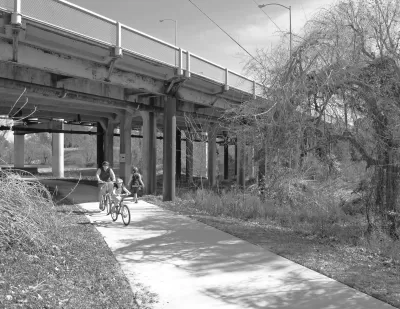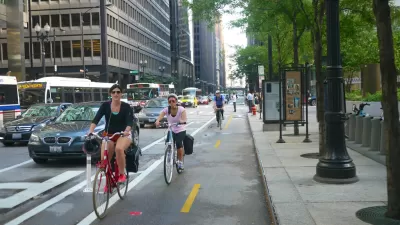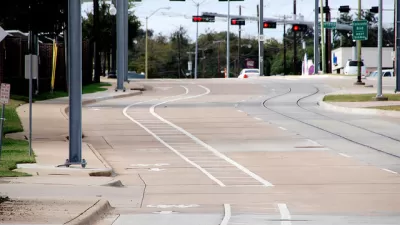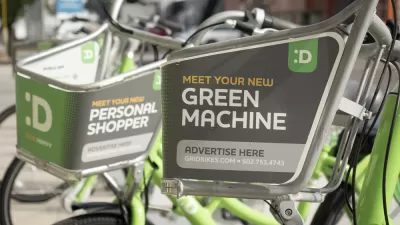Despite Houston's reputation for sprawl, the city has made impressive efforts to build out its bike infrastructure.

BikeHouston's new executive director, Joe Cutrufo, sees his new home city as "a place brimming with potential to become one of the nation’s most bike-friendly cities." Cutrufo spoke with Andy Olin of the Kinder Institute about his choice to take the job and the challenges and opportunities presented by the vast and dynamic city.
One of his top goals is to advocate for the construction of a comprehensive bike network, the key to creating safe streets and encouraging more biking. "Houston is very big on the map in terms of cities with good bike networks and growing bike networks," Cutrufo said. "I see some systemic problems when it comes to expanding bike network, but I see a lot of goodwill." He sees expanding bike infrastructure as a step toward a more equitable and inclusive city, where jobs and opportunities are within reach for people who don't drive. "That’s where I think bicycling can step in as a mode that can give people greater access to opportunity."
Cutrufo is laser-focused on creating a comprehensive and accessible bike network that includes on-street infrastructure, safe bike storage, and effective linkages to job centers, parks, and public transit. He recognizes that this effort has to involve a variety of stakeholders at the neighborhood, city, and county level. "When it comes to creating a shared vision for Houston, in terms of safe streets, and creating dedicated, protected bike networks, there needs to be a shared vision."
FULL STORY: The new BikeHouston boss has a vision for safer streets for all

Alabama: Trump Terminates Settlements for Black Communities Harmed By Raw Sewage
Trump deemed the landmark civil rights agreement “illegal DEI and environmental justice policy.”

Planetizen Federal Action Tracker
A weekly monitor of how Trump’s orders and actions are impacting planners and planning in America.

The 120 Year Old Tiny Home Villages That Sheltered San Francisco’s Earthquake Refugees
More than a century ago, San Francisco mobilized to house thousands of residents displaced by the 1906 earthquake. Could their strategy offer a model for the present?

In Both Crashes and Crime, Public Transportation is Far Safer than Driving
Contrary to popular assumptions, public transportation has far lower crash and crime rates than automobile travel. For safer communities, improve and encourage transit travel.

Report: Zoning Reforms Should Complement Nashville’s Ambitious Transit Plan
Without reform, restrictive zoning codes will limit the impact of the city’s planned transit expansion and could exclude some of the residents who depend on transit the most.

Judge Orders Release of Frozen IRA, IIJA Funding
The decision is a victory for environmental groups who charged that freezing funds for critical infrastructure and disaster response programs caused “real and irreparable harm” to communities.
Urban Design for Planners 1: Software Tools
This six-course series explores essential urban design concepts using open source software and equips planners with the tools they need to participate fully in the urban design process.
Planning for Universal Design
Learn the tools for implementing Universal Design in planning regulations.
Clanton & Associates, Inc.
Jessamine County Fiscal Court
Institute for Housing and Urban Development Studies (IHS)
City of Grandview
Harvard GSD Executive Education
Toledo-Lucas County Plan Commissions
Salt Lake City
NYU Wagner Graduate School of Public Service





























